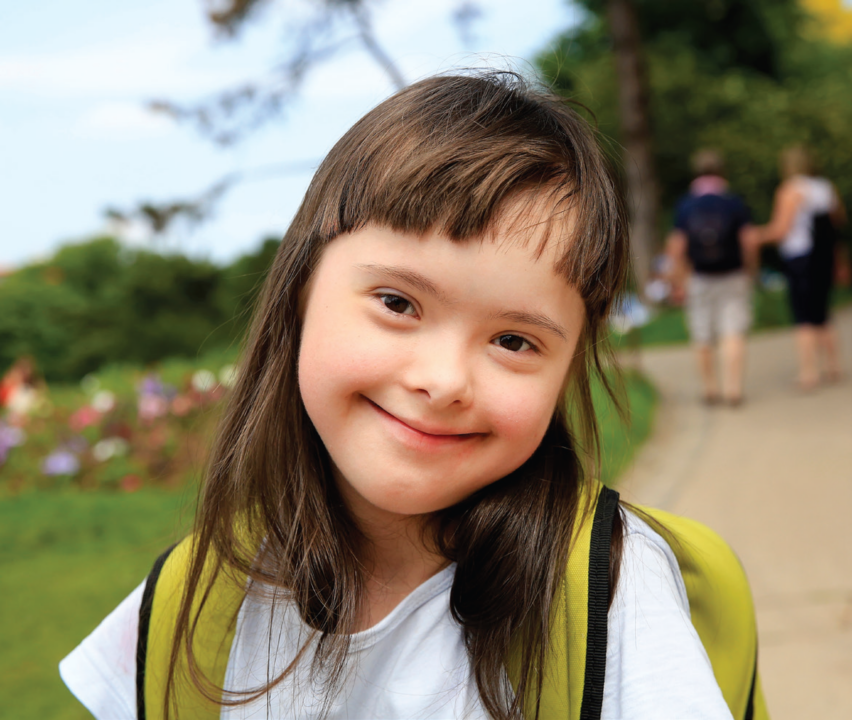As parents, we come to learn that there are many subjects to discuss with our children. Some conversations we prepare ourselves for – we know that they’re coming. Others catch us off guard perhaps because we never realized that it would be a subject for discussion. Nevertheless, we find the words to say to guide our children appropriately.
We listen to their curiosities and provide as much support for them to walk away from the conversation confident and prepared to handle the subject matter out in the world. Our kids, even as infants, learn and connect quickly! Toddlers begin to relate to one another and recognize similarities and differences. By the time they are school age, they are articulating all that they notice about their environment and the people around them. One aspect of their many interactions which may raise questions for them, is that of their peers who live with developmental disabilities.
Developmental disabilities, as defined by the Centers for Disease Control and Prevention, are a group of conditions due to an impairment in physical, learning, language or behavior areas. According to the CDC, about one in six children in the U.S. have one or more developmental disabilities or other developmental delays. These conditions occur throughout one’s growth stages, and can last a lifetime. As your children meet new classmates or maybe even gain a new neighbor who has developmental disabilities, they may have questions for you to help them navigate ways to relate to their peers. Helping your child learn early that differences are OK and communicating with them that people who live disabilities still have ability and value is important. The result is a kinder world.
We were able to capture a conversation with Susan Wiley, division of developmental and behavioral pediatrics director at Cincinnati Children’s Hospital and Medical Center, and her inquisitive 5-year-old patient, Jessie. What you will read are the kinds of questions you may also encounter at home. Perhaps Wiley’s responses can be a guiding light for you and your family when the subject of disabilities arise:
Q: “Why can’t my friend at school speak like I do? We’re the same age?”
A: “Everyone has things they are good at and things that are hard for them. Some children have a hard time talking clearly. Sometimes therapy helps them become clearer and sometimes children learn to communicate in different ways. Even if their speech isn’t clear, they still have things they want you to know and things they want to communicate. Let’s figure out how you can communicate together with your friend.”
Q: “Okay. But, why are some kids born disabled?”
A: “We don’t really know why some children are born with differences. It isn’t something you can catch from someone or anyone’s fault. We do know that every person has things about them that are unique, and things that are similar to others. For example, maybe you both like the same color or games…”
Q: “We both like music class … will he grow up and not be disabled anymore?
A: “Some disabilities do not go away. Some problems can be helped by therapy and get better. Even if it doesn’t change, we know that he can learn new things and be part of our community.”
Q: “So, who will take care of him when he grows up?”
A: “Many people with disabilities are independent and don’t need to have someone take care of them. Other times, their parents still help them with their needs. There are also nice people whose job is to take care of people with disabilities to make sure they live a happy and healthy life.”
Q: “Are we still able to become best friends if he is disabled?”
A: “Absolutely! All children want to have friends and there are many things you can do together to be friends. Let’s go find out how you are alike!” Positive reinforcements and affirmations that highlight the many ways children are similar help shape a compassionate view point for them. We may not always have textbook knowledge on a subject, but, if we lead the conversation with truth, love, and understanding, we are off to a fruitful start!





